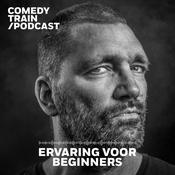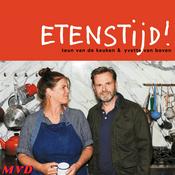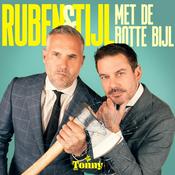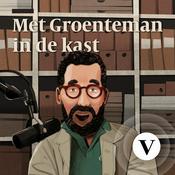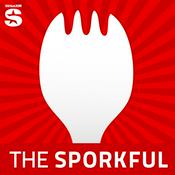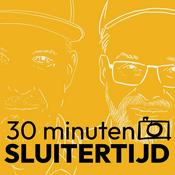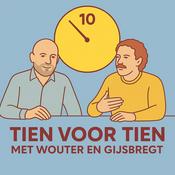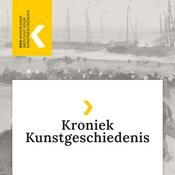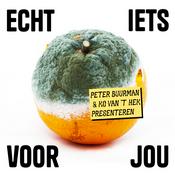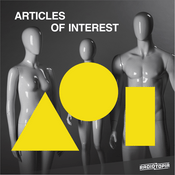62 afleveringen
Professor Andrew Thatcher - Green Buildings, Sustainability, HFE Education and the IEA
01-2-2026 | 34 Min.David Caple from the HFESA chats with Professor Andrew Thatcher about Green Buildings and the Human.
Andrew Thatcher is a professor and chair of industrial/organisational psychology at the Un diversity of the Witwatersrand in South Africa, where he obtained his PhD in 2003. Andrew is currently the President in the International Ergonomics and Human Factors Association and Co-Editor-in-Chief of the journal Ergonomics. His research interests focus on integrating sustainability concepts into human factors and ergonomics. He has received numerous awards for this work including the national 2003 NSTF-South32 Green Economy Award and the 2025 Hal Hendrick Distinguished International Colleague award from the HFES.
This educational podcast is brought to you by the Human Factors and Ergonomic Society of Australia. If you like this podcast please make us your favourite on your podcast app.
If you want to find out more about Human Factors and Ergonomics or if you have a question about this podcast please go to the HFESA website ergonomics.org.au and make your request via our contact page. We will be back with more episodes soon!- Sharon Todd is chatting with Alison Heller-Ono, PT, MSPT, CPE, President and CEO of Worksite International, Inc.
Alison is passionate about how people work! As an entrepreneur, pioneer, and bold industry leader in the ergonomics marketplace since 1993, Alison helps small- to mid-size multinational and global employers keep employees healthy so they can work to their full potential. Alison is a trusted advisor and consultant to clients who desire a safe, comfortable, and productive workforce. She is also a coach and mentor to professionals desiring to learn about occupational ergonomics. Alison has presented her high-impact work on ergonomics to global audiences on four continents.
Ms. Heller-Ono is a veteran Physical Therapist with dual credentials as a Certified Industrial Ergonomist (CIE) and Certified Professional Ergonomist (CPE), as well as a Certified Disability Analyst. Her sought-after expertise is in preventing and managing work-related musculoskeletal disorders while finding reasonable solutions to drive change within organizations. Worksite International helps employers to save thousands of dollars while boosting morale and productivity through the science of ergonomics. WI’s focus is on office, home, remote, lab, and industrial ergonomics.
Under Alison’s guidance, Worksite International launched the Worksite International Ergonomics Training Academy in 2018, featuring online classes targeted for employers and employees to learn about ergonomics at work. The Academy also offers professional courses to become certified ergonomics specialists (CASp, COESp, CRESp) using the Worksite International System of Ergonomics Evaluation (WISEE)® and the Worksite International Ergonomics Process (WIEP)®.
She recently launched Worksite International’s first cloud-based software solutions. The Ergo-Case Tracker for individual ergonomic case management and ergonomics process metrics tracking. The Chair Assessment System (CAS) is a chair asset management software used to determine the quality and competency of chair assets in the workplace.
This educational podcast is brought to you by the Human Factors and Ergonomic Society of Australia. If you like this podcast please make us your favourite on your podcast app.
If you want to find out more about Human Factors and Ergonomics or if you have a question about this podcast please go to the HFESA website ergonomics.org.au and make your request via our contact page. We will be back with more episodes soon! - Sharon Todd chats to Dr Ken Catchpole one of the HFESA's keynote speakers for the annual conference in Tasmania Australia in December. So who is he, what does he do and what can we expect?
Dr Ken Catchpole is a cognitive scientist and human factors practitioner who seeks to understand and improve human performance in complex systems. After leading a nationwide project developing human abilities in weapon detection at UK airports, he began research in healthcare in 2003 at Great Ormond Street Hospital, London, examining the mechanisms of teamwork and safety in surgery. He now works with clinicians to develop and scientifically evaluate interventions to improve performance, while taking a semi-ethnographic approach to understanding the complex nature of safety, quality and human error in healthcare.
In the past he has contributed to healthcare research and improvement at hospitals in the UK, Netherlands, Australia, and New Zealand; and has assisted a number of UK groups, including Royal Colleges of Anaesthetists and Surgeons, in the establishment of human factors principles in healthcare. His work with the Ferrari racing team on handovers from surgery to intensive care was short-listed for the Times Research Project of the Year in 2007, was adopted internationally by a variety of hospitals and quality improvement organisations, and was exhibited in the Science Museum in London.
After working at the University of Oxford for nearly 6 years, he was invited to join Cedars-Sinai Medical Centre in Los Angeles to embark on new projects in trauma, handovers, teamwork, and systems redesign. Subsequently, he moved to the Medical University of South Carolina, where he has lead major grants in medication safety, surgical technology, instrument reprocessing, and retained foreign objects, with a large number of smaller projects. Through popular and scientific articles, keynote addresses, and media coverage, he has sought to engage a worldwide audience in the evaluation and improvement of safety in healthcare from a human factors perspective.
This educational podcast is brought to you by the Human Factors and Ergonomic Society of Australia. If you like this podcast please make us your favourite on your podcast app.
If you want to find out more about Human Factors and Ergonomics or if you have a question about this podcast please go to the HFESA website ergonomics.org.au and make your request via our contact page. We will be back with more episodes soon! - Sidney Irwin is an early career researcher and lecturer at the School of Health, Medical and Applied Sciences at Central Queensland University. She received her doctorate from the same university. Her focus is on the normative rules of trash talk in esports and is expanding her expertise towards esport psychology, human factors and user experiences.
Currently, Sidney is focused on investigating the impact of jet lag on professional player performance. She has a qualitative research background and has grown her field of research towards rail, forestry and shiftwork sectors.
This educational podcast is brought to you by the Human Factors and Ergonomic Society of Australia. If you like this podcast please make us your favourite on your podcast app.
If you want to find out more about Human Factors and Ergonomics or if you have a question about this podcast please go to the HFESA website ergonomics.org.au and make your request via our contact page. We will be back with more episodes soon! - Gemma Read from the Centre for Human Factors and Sociotechnical Systems (UniSC) chats to Samantha Jackson about Remotely Piloted Aircraft System (RPAS) safety.
Samantha Jackson is a registered psychologist, human factors professional, and PhD candidate. She holds a Bachelor of Arts (Psychology), a Bachelor of Social Science (Psychology)(Honours), and a Postgraduate Certificate in Safety and Accident Investigation.
She served in the Australian Army for 24 years, holding both generalist and specialist officer roles across full-time and part-time service. Her career spanned multiple domains, including communications and information systems, aviation, health, and policy. In her final role, she served within Army Aviation’s Psychology and Human Factors team, where she provided specialist advice on system safety, human performance, role suitability, occupational selection, task and systems analysis, incident investigation, and fatigue risk management.
She is currently pursuing a PhD at the Centre for Human Factors and Sociotechnical Systems at the University of the Sunshine Coast. Her research aims to enhance the safety performance of Australia’s Remotely Piloted Aircraft Systems (RPAS) by applying systems thinking through a many-models approach. Specifically, she aims to identify key leverage points within the sociotechnical safety management system to optimise its overall effectiveness.
Associate Professor Gemma Read and Professor Paul Salmon are supervising Samantha’s research. Gemma and Samantha discuss her recent study which analysed 14 RPAS incident investigation reports. The article is available open access here:https://www.sciencedirect.com/science/article/pii/S0003687025000043
This educational podcast is brought to you by the Human Factors and Ergonomic Society of Australia. If you like this podcast please make us your favourite on your podcast app.
If you want to find out more about Human Factors and Ergonomics or if you have a question about this podcast please go to the HFESA website ergonomics.org.au and make your request via our contact page. We will be back with more episodes soon!
Meer Kunst podcasts
Trending Kunst -podcasts
Over Human Factors & Ergonomics (HFE) Hub
These podcasts are a series of educational podcasts from the Human Factors and Ergonomics Society of Australia (HFESA). These podcasts focus on the connection between human capabilities and good design. Their aim is to promote the field of Human Factors and Ergonomics and provide guidance and professional development.
Podcast websiteLuister naar Human Factors & Ergonomics (HFE) Hub, Boeken FM en vele andere podcasts van over de hele wereld met de radio.net-app

Ontvang de gratis radio.net app
- Zenders en podcasts om te bookmarken
- Streamen via Wi-Fi of Bluetooth
- Ondersteunt Carplay & Android Auto
- Veel andere app-functies
Ontvang de gratis radio.net app
- Zenders en podcasts om te bookmarken
- Streamen via Wi-Fi of Bluetooth
- Ondersteunt Carplay & Android Auto
- Veel andere app-functies


Human Factors & Ergonomics (HFE) Hub
Scan de code,
download de app,
luisteren.
download de app,
luisteren.



